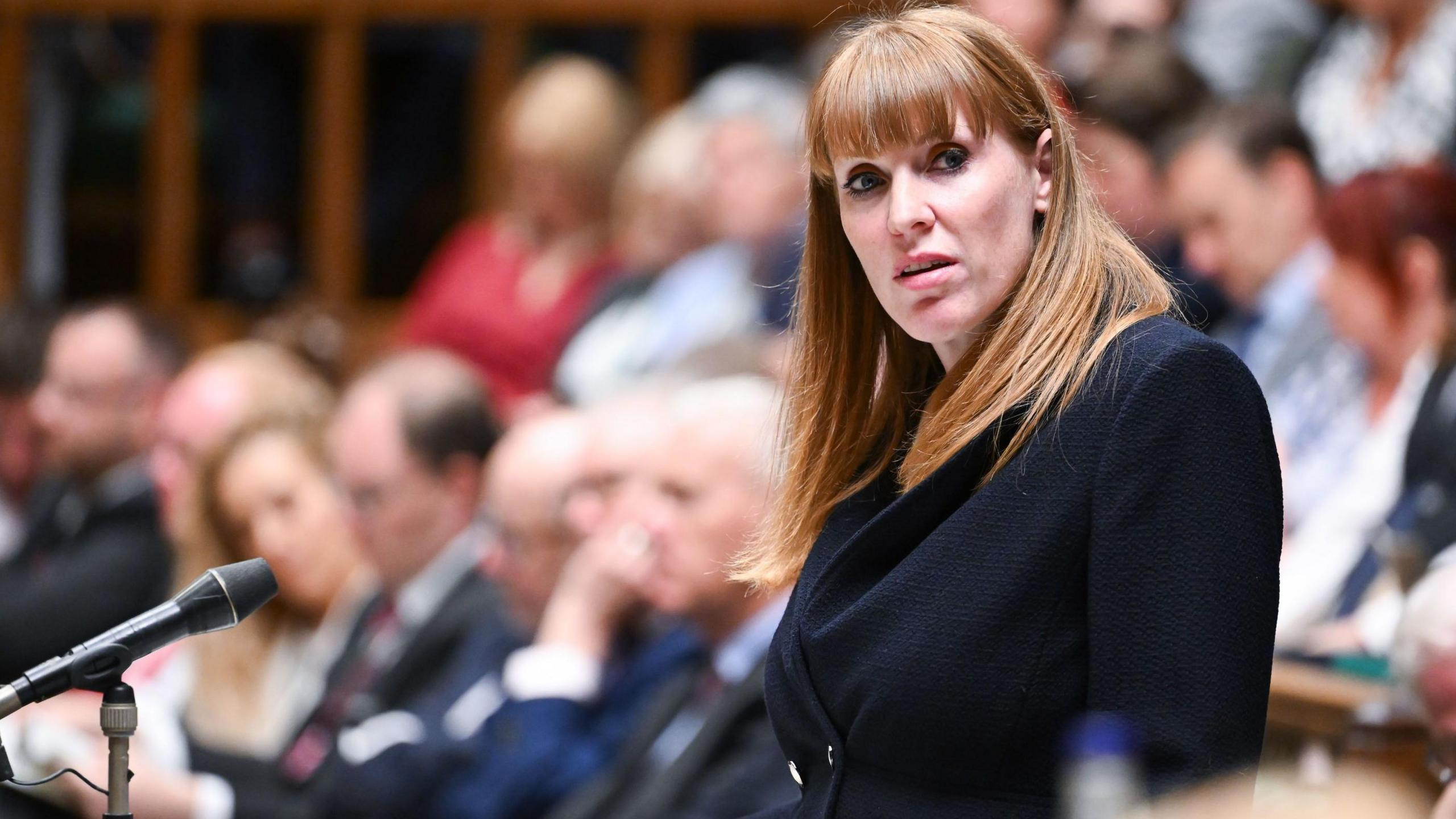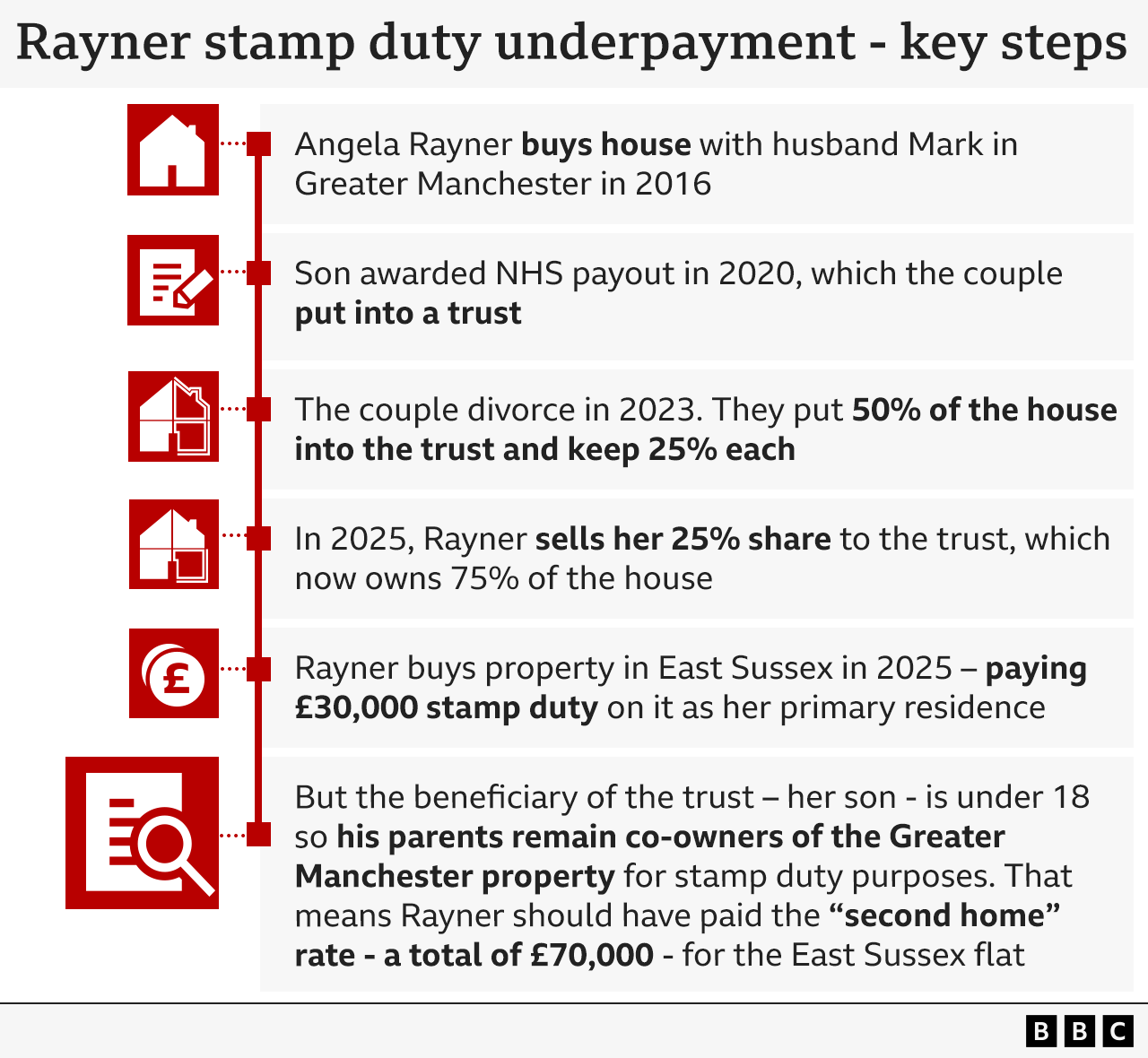Angela Rayner - and the rest of us - now face waiting game

- Published
It is over now to Sir Laurence Henry Philip Magnus.
Sir Laurie was appointed as the Prime Minister's Independent Adviser on Ministers' Interests in December 2022 by Rishi Sunak.
The job has since been renamed the Independent Adviser on Ministerial Standards.
Not for the first time, this veteran banker from the City of London, external finds himself the central character in the immediate career prospects of one of the country's most senior political figures.
He will seek and then pore over the paper trail, talk to Angela Rayner and attempt to establish a definitive timeline of what she did and when and who she spoke to and why.
In January 2023, when the then Conservative Party Chairman Nadhim Zahawi faced questions about his tax affairs, Sir Laurie was called in.
Six days after his investigation began, Zahawi was out of government.
Earlier this year, Sir Laurie spent eight days looking into the then Treasury Minister Tulip Siddiq. She didn't survive in government afterwards either.
So, precedent suggests this latest inquiry will take around a week.
But if Sir Laurie is effectively the jury here, it is the prime minister who is the judge.
In other words when he sees the adviser's report, it is on that basis that he will have to decide if it is tenable to keep Rayner on.
Did she act carelessly? Did she breach the Ministerial Code? Is it credible for her to stay on?
Meanwhile, the Conservatives are calling on the tax authority HMRC to investigate.
BBC's Politics Investigations Correspondent Billy Kenber writes here about what that might mean for Rayner.
The deputy prime minister has hinted that she had considered resigning over this saga but chose not to and referred herself to Sir Laurie.
Now she - and the rest of us - await his investigation.


Sign up for our Politics Essential newsletter to read top political analysis, gain insight from across the UK and stay up to speed with the big moments. It'll be delivered straight to your inbox every weekday.